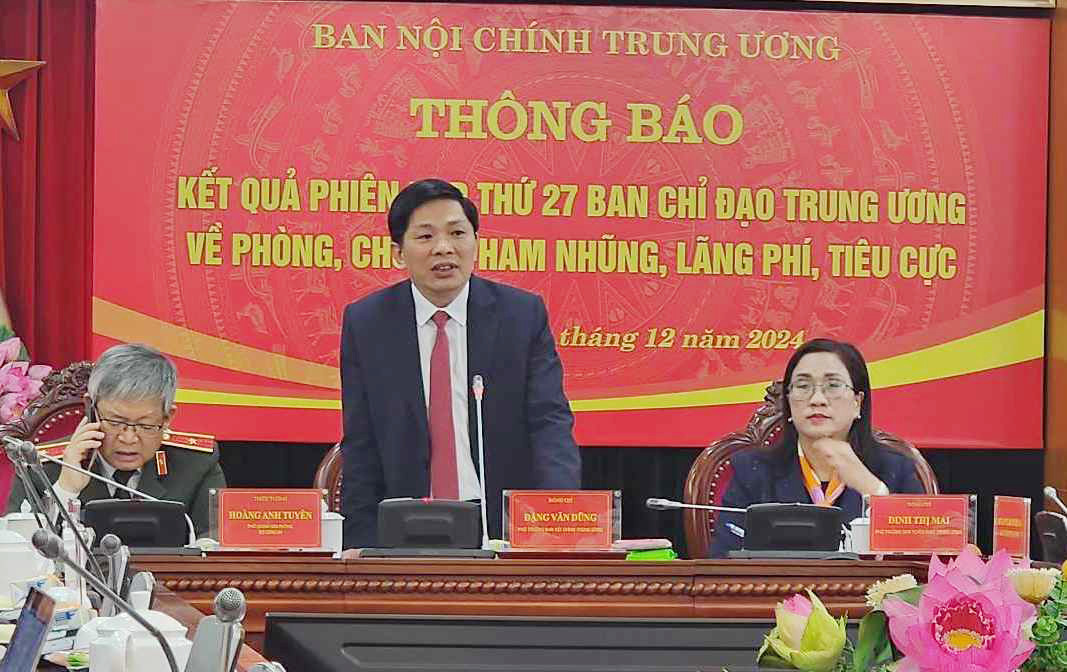
In 2025, investigations and proceedings will conclude for 26 cases and 9 incidents, with focus on initial trials for major corruption cases involving Phuc Son Group, Thuan An Group, Vietnam Electricity (EVN), Thai Duong Group, Vietnam Rare Earth Joint Stock Company, the Saigon-Dai Ninh project (Lam Dong), and Nha Trang Airport.
The announcement was made by Dang Van Dung, Deputy Head of the Central Internal Affairs Commission, during the 27th meeting of the Central Steering Committee on Anti-Corruption and Negative Phenomena on December 31.
Strengthening anti-corruption measures ahead of Party Congress
Deputy Head Dang Van Dung emphasized that 2025 will be a critical year, with Party congresses at all levels leading to the 14th National Congress. The Steering Committee stressed the need for stronger, more effective anti-corruption measures to support the success of these congresses and address pressing national priorities.
Key directives include addressing institutional and legal bottlenecks, removing obstacles to socio-economic development, and enhancing efforts to combat corruption and waste.
Central to these efforts is the completion of a national strategy to combat waste, revising regulations for streamlined governance, and addressing inefficiencies highlighted by the National Assembly.
Major trials and comprehensive anti-waste initiatives
The Steering Committee set a goal to conclude investigations for 26 cases and 9 incidents in 2025. Initial trials are planned for prominent cases involving entities such as Phuc Son Group, Thuan An Group, EVN, Thai Duong Group, and Vietnam Rare Earth Joint Stock Company. High-profile projects, including the Saigon-Dai Ninh development and Nha Trang Airport, are also under scrutiny.
Authorities are prioritizing the review of stalled projects causing significant losses and waste, with results expected by the first quarter of 2025.
Additional measures include increased inspections, audits, and prosecutions for severe corruption and waste cases, particularly those affecting personnel for Party congresses.
The Steering Committee also called for effective implementation of regulations to control power, prevent corruption in personnel work, and ensure transparency in asset and income declarations. This includes administrative reforms, digital transformation, and the promotion of cashless payments.
Efforts to improve provincial Steering Committees’ effectiveness and develop mechanisms for public oversight were emphasized. Citizens are encouraged to report corruption and waste directly, ensuring greater public involvement.
The Steering Committee announced the closure of oversight on 10 cases and 3 incidents, having completed resolution per legal regulations. These cases mark progress in the ongoing anti-corruption drive.
Thu Hang